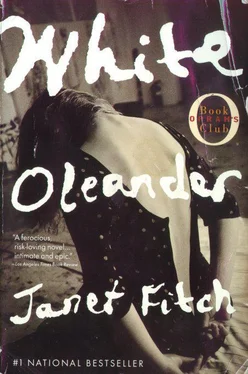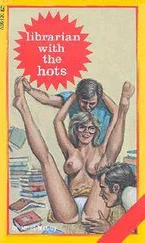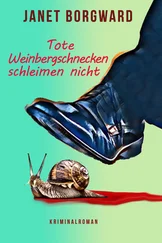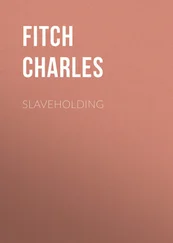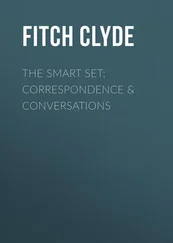Janet Fitch - White Oleander
Здесь есть возможность читать онлайн «Janet Fitch - White Oleander» весь текст электронной книги совершенно бесплатно (целиком полную версию без сокращений). В некоторых случаях можно слушать аудио, скачать через торрент в формате fb2 и присутствует краткое содержание. Жанр: Современная проза, на английском языке. Описание произведения, (предисловие) а так же отзывы посетителей доступны на портале библиотеки ЛибКат.
- Название:White Oleander
- Автор:
- Жанр:
- Год:неизвестен
- ISBN:нет данных
- Рейтинг книги:3 / 5. Голосов: 1
-
Избранное:Добавить в избранное
- Отзывы:
-
Ваша оценка:
- 60
- 1
- 2
- 3
- 4
- 5
White Oleander: краткое содержание, описание и аннотация
Предлагаем к чтению аннотацию, описание, краткое содержание или предисловие (зависит от того, что написал сам автор книги «White Oleander»). Если вы не нашли необходимую информацию о книге — напишите в комментариях, мы постараемся отыскать её.
White Oleander — читать онлайн бесплатно полную книгу (весь текст) целиком
Ниже представлен текст книги, разбитый по страницам. Система сохранения места последней прочитанной страницы, позволяет с удобством читать онлайн бесплатно книгу «White Oleander», без необходимости каждый раз заново искать на чём Вы остановились. Поставьте закладку, и сможете в любой момент перейти на страницу, на которой закончили чтение.
Интервал:
Закладка:
She started crying, deep harsh moans, turned her head away from me.
I got her some Tylenol and a glass of soda, watched as she took it in sips. “Vinegar. On a washcloth.” She fell back onto the cushions. “White vinegar. Wring it out.” Her voice hoarse as sandpaper. “And turn out the lights.”
I turned off the lamps, soaked a washcloth in vinegar, wrung it out, brought it to her. I didn’t dare ask what had happened.
“Seventeen takes,” she said, placing the washcloth over her forehead and eyes. “Do you know how long that is? A hundred people waiting for you? I will never, ever act again.”
I held her hand, sat on the floor by her supine figure in the dark room filled with vinegar fumes. I didn’t know what to say. It was like watching someone you loved step on a land mine, all the parts flying around. You don’t know what to do with the pieces.
“Put on Leonard Cohen,” she whispered. “The first album, with ‘The Sisters of Mercy.’ ”
I found the album, the one with Cohen’s beaky face on the front, a saint rising from flames on the back, put it on. I sat by her, pressed her hand hard against my cheek. His sad singsong voice droning plaintively about the Sisters of Mercy, how he hoped you’d run into them too.
After a while she stopped crying, I think she fell asleep.
I’d never cared about someone so much that I could feel their pain before. It made me sick, that they could do something like that to Claire, and I wasn’t there, to tell her, Quit, you don’t have to do this. “I love you, Claire,” I said softly.
I WENT TO art class one evening, and we waited for Ms. Day, but she didn’t show up. One of the old lady students drove me home. I opened the door, hung with a Christmas wreath with little candied pears and porcelain doves, expecting to find Claire in the living room, reading one of her magazines and listening to music, but she wasn’t there.
I found her sitting on my bed, cross-legged, reading my mother’s papers. Letters from prison, poet’s journals, personal papers, all fanned out around her. She looked pale, absorbed, biting the nail of her ring finger. I didn’t know what I was supposed to do. I was outraged, I was scared. She shouldn’t have been reading those things. I needed to keep them separate. I didn’t want her to have anything to do with my mother, anything I couldn’t control. And now she’d gone and opened the box. Like Pandora. Letting out all the evil. They were always so fascinated by Ingrid Magnussen. I felt myself retreating again, into her shadow. These were my things. Not even mine. I trusted her.
“What are you doing?”
She jumped, throwing the notebook she was reading into the air. Her mouth opened to explain, then closed. Opened again. No sound came. When she was upset, she couldn’t say a thing. She tried gathering the offending materials with trembling hands, but they came in too many shapes, they scattered under her awkward clutchings. Defeated, she let them fall, closed her eyes, covered her face with her hands. She reminded me of Caitlin, who thought we couldn’t see her if she couldn’t see us. “Don’t hate me,” she said.
“Why, Claire? I would have shown you if you had asked.”
I started to collect the notebooks, rice paper bound in string, Italian marbleized notebooks, Amsterdam school copybooks, smooth-bound, leather-bound, tied with shoelaces. My mother’s journals, my absence written in the margins. None of this was about me. Even the letters. Only her.
“I was depressed. You were gone. She seemed so strong.”
She was looking for a role model? I almost had to laugh. Claire admiring my mother made me want to slap her. Wake up! I wanted to scream. Ingrid Magnussen could damage you just passing by on the way to the bathroom.
And now she’d read the letters. She knew that I’d refused to discuss her with my mother. I imagined how it must have hurt her. Now I wished I’d thrown them out, not lugged them around like a curse. Ingrid Magnussen. How could I explain? I didn’t want my mother to know about you, Claire. You’re the one good thing that ever happened to me. I didn’t want to take any chances. How my mother would hate you. She doesn’t want me to be happy, Claire. She liked it that I hated Marvel. It made her feel close to me. An artist doesn’t need to be happy, she said. If I were happy, I wouldn’t need her, she meant. I might forget her. And she was right. I just might.
She scolded me in those letters. What do I care about a 98 on a spelling test? Your flower garden. You’re so boring, I don’t even recognize you. Who are these people you’re living with now? What are you really thinking? But I never told her a thing.
“You want to know about my mother?” I took a gray ribboned notebook, opened it, and handed it to Claire. “Here. Read it.”
She took her hands down, her eyes puffy and red, her nose running. She hiccupped and took it from me. I didn’t have to look over her shoulder. I knew what it said.
Spread a malicious rumor.
Let a beloved old person’s dog out of the yard.
Suggest suicide to a severely depressed person.
“What is this?” she asked.
Tell a child it isn’t very attractive or bright.
Put Drano in glassine folded papers and leave them on street-corners.
Throw handfuls of useless foreign coins into a beggar’s cup, and make sure they thank you profusely. “God bless you, miss.”
“It’s not real, though,” Claire said. “It’s not like she actually does these things.”
I only shrugged. How could Claire understand a woman like my mother? She would write these lists for hours, laughing until tears flowed.
Claire looked at me hungrily, pleading. How could I stay angry with her? My mother had no idea what my favorite food was, where I’d live if I could live anywhere in the world. Claire was the one who discovered me. She knew I’d want to live in Big Sur, in a cabin with a woodstove and a spring, that I liked green apple soap, that Boris Godunov was my favorite opera, that I was afraid of milk. She helped me pack the papers back into the box, shut it, and put it under the bed.
18
RON AND CLAIRE were fighting again in their room. I could hear it as I lay in my bed, the rabbit crouching on my wall, his ears erect and trembling. Claire wanted Ron to quit his job, find something to do that didn’t involve cattle mutilations or witchcraft in the Pueblos.
“What do you want me to do, wash dishes?” It was rare to hear Ron raise his voice. But he was tired, just back from Russia, he hadn’t expected a fight. Usually it was a home-cooked meal and kisses and clean sheets. “I’m earning a living. It’s just a job, Claire. Jesus, sometimes I just don’t know what goes on in your head.”
But it was a lie. What Ron did was peddle fear. There was quite a market, it seemed. Everywhere, people were frightened. Threatening shapes lurked at the edges of vision, in the next car, at the ATM, maybe waiting for them in the hall with a .38. There was poison in supermarket toothpaste. Ebola, hepatitis C. Husbands disappeared on the way to the liquor store. Children showed up dead in ditches without their hands. The picture was pulled away from the frame, the outlines were gone. People wanted monsters and ghosts and voices from beyond the grave. Something foreign, intentional, not senseless and familiar as a kid getting shot for his leather jacket.
That’s what Ron supplied. Fear in a frame. Aliens are always preferable to confused, violent acts. It was a career steeped in cynicism, pumped through with hypocrisy.
Her voice in reply was like bending sheet metal.
But I could understand him word for word. “What, you think I come off a fourteen-hour day, jetlagged, at some spoonbending convention in Yakutsk, ready to party? Hey, wow, bring on the bimbos! Maybe you should try getting some work, and remember what it’s like to be wiped out at the end of a day.”
Читать дальшеИнтервал:
Закладка:
Похожие книги на «White Oleander»
Представляем Вашему вниманию похожие книги на «White Oleander» списком для выбора. Мы отобрали схожую по названию и смыслу литературу в надежде предоставить читателям больше вариантов отыскать новые, интересные, ещё непрочитанные произведения.
Обсуждение, отзывы о книге «White Oleander» и просто собственные мнения читателей. Оставьте ваши комментарии, напишите, что Вы думаете о произведении, его смысле или главных героях. Укажите что конкретно понравилось, а что нет, и почему Вы так считаете.
